Recurring Deposits (RD) – Benefits, Features, and How to Open RD Account
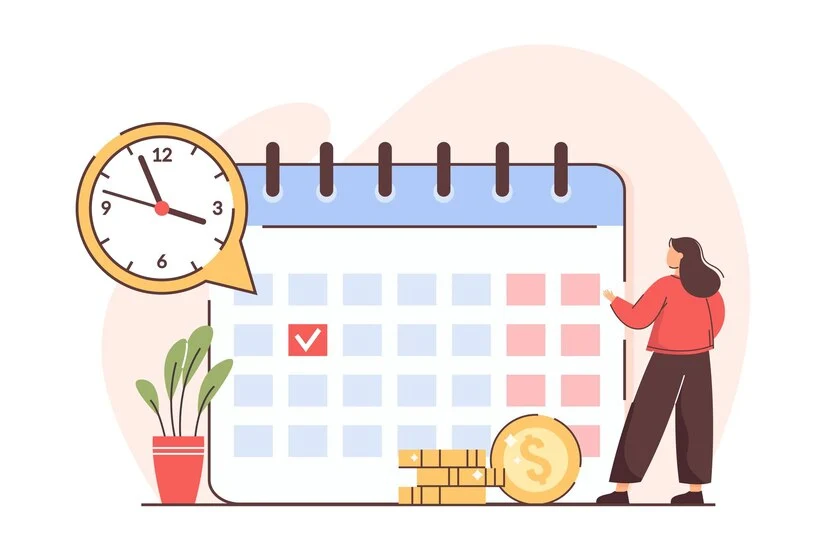
Among the different types of investment products available in India these days, recurring deposits are extremely popular among middle-class investors. The reason is quite evident – one can invest smaller amounts at regular investors and get attractive growth for the investment tenure. In addition, opening a recurring deposit is very easy now as it just takes a few minutes to open such an account. From post offices to banks, gold firms, and others, there are several avenues one can make a recurring deposit these days. Let’s find out more about recurring deposits in the following section of this post.
What is a Recurring Deposit?
A recurring deposit simply refers to depositing money regularly. A majority of banks and financial institutions offer this investment tool which allows individuals of all sorts to make regular deposits and earn attractive returns on their investments.
An RD account can be defined as a banking or postal service account in which a depositor puts a specific amount each month for a fixed time which may range from 1 to 5 years or more. This kind of setting is for investors who look forward to investing a particular amount each month in anticipation of obtaining a payoff in a few years.
How does RD Work?
In general, fixed deposits simply refer to a setting where a person places money aside that may be withdrawn after a specific time. It is to be noted that the investors cannot change the amount of the money or maybe add to it in the meantime.
For a majority of conditions, the process remains similar for the recurring deposits. Rather than investing the amount in one go, investors are obliged to make a regular monthly transfer into their account of the amount they choose at the time of the opening of an RD account. This amount can be as low as Rs. 100. And, at the time of the maturity, the investors will have a sizable amount in addition to your capital.
Benefits Of Recurring Deposit
- Wonderful Interest Rate: Recurring Deposit Interest rates, The favourable interest rate that makes recurrent deposits more profitable than traditional savings accounts is their most advantageous feature. For instance, you may earn attractive interest rates on the deposited amount if you choose to open an RD account with Investkraft. The interest rates are computed annually and compounded four times a year.
- Penalty Not Included: There was a time when monthly payments were pending, and banks were used to charge penalties. Saving with an RD account, however, has grown more investor-friendly with Investkraft as it doesn’t charge any penalty for skipping a monthly payout. There are no early withdrawal penalties for recurring deposits. However, the most recent interest will not be applied to your investment if you withdraw it too soon.
- Start small: In the case of an RD account, even investors with low incomes may choose to save money because the minimum balance starts at about Rs. 500 and varies according to the bank or organisation. There are many banks and financial institutions that allow investors to start a recurring deposit with an amount as low as Rs. 100. As a result, you may start with a budget that suits you and avoid making sacrifices when it comes to your everyday costs.
- Flexible Tenure: Recurring Deposit tenure, Similar to the minimal amount, you may pick a brief duration according to your demands or financial capabilities. It is a great choice for short-term investing because IDFC FIRST Bank allows you to start recurring deposit accounts for as little as six months.
- Easy Documentation: With the same bank where you currently have a savings account, you may open an RD account and link it to your savings account without providing any additional paperwork. As a result, beginning an RD is simple.
- Great for Short-term Financial Goals: An RD can be a great way to save money if you frequently establish short-term objectives like taking yearly vacations or replacing your phone or other electronics every few years.
- Save Through Instalments: When individuals receive large sums of amount, most people open FDs. If your salary and spending plan leaves you with less money at the end of the month, you may choose to open an RD account to make use of this excess money. By doing this, you may save modest sums that add up to a huge number over time, and the money you would have otherwise left sitting in your bank account would earn a greater interest rate.
How Can I Maximize My Returns With Recurring Deposits (RDs)?
Understanding how to maximize your investment is essential. Below, you will find some valuable tips for optimizing your recurring deposit (RD) account to achieve the best returns.
- When signing up for a recurring deposit scheme, it is important to consider the ease of the process. Be sure to compare interest rates and other terms offered by various banks. Interest rates for RD accounts can differ significantly, so it’s wise to opt for a bank that offers the most competitive rate, typically between 5.5% and 7.5%.
- Banks offer tenures ranging from 6 months to 10 years, allowing you to choose a suitable timeframe based on your financial goals. For instance, if you have to pay your child’s education fees within a year, you can select a 12-month tenure. It is important to carefully consider the tenure and amount to ensure you receive the necessary returns to fulfil your specific needs.
- Before signing up for an RD account, it is important to note that a specific amount will be deducted from your account each month until your RD matures. Selecting the wrong amount could create a financial strain, so it's crucial to invest an amount that won’t impact your ability to cover essential expenses.
- Locking your money in a recurring deposit account until it matures is crucial to maximizing your returns. Premature withdrawals should be avoided unless it is an emergency, as they may result in penalties. It is important to calculate your returns and ensure they align with your financial goals.
- Flexi recurring deposits are offered by certain banks, allowing customers to increase their monthly deposits for a higher maturity amount. However, it is important to carefully consider your other investments and only choose this option if you have extra funds available to increase the deposits consistently.
- It is important to remember that taking a loan against your RD should be a last resort, as it can affect the overall growth of your savings. It is best to explore other options for financing before considering this route and to use the loan facility only in emergencies. This can help ensure that your RD continues to build value over time.
- It is crucial to add a nomination in your RD to ensure the money goes to your nominee if something happens to you, protecting your investment.
What are the Tax Implications and Benefits of Recurring Deposits (RDs)
RDs are a popular investment choice in India where individuals can save money regularly and earn interest on their deposits. RDs offer a fixed interest rate for a specific period, similar to fixed deposits. However, investors need to consider the taxation of RD interest.
- Tax on RD Interest: The interest earned from a recurring deposit is taxable under the Income Tax Act of 1961. It is treated as a part of your total taxable income and is subject to tax based on your income tax slab rate. The interest income is combined with your annual income and taxed accordingly.
- TDS: Banks and financial institutions are required to deduct Tax Deducted at Source (TDS) on RD interest if it crosses a certain threshold, which is currently set at 40,000 rupees per financial year. If the interest earned on your RDs from a specific bank goes beyond this limit, the bank must deduct TDS at the prescribed rate before crediting the interest to your account.
- TDS Rates for RD Interest: The TDS rates on RD interest depend on whether you have shared your PAN with the bank. If you have provided your PAN, the TDS rate is 10%. If not, then the TDS rate is 20%. It is essential to provide your PAN to the bank to ensure accurate TDS deduction and avoid higher tax deductions.
- Form 15G/15H for No TDS Deduction: To avoid TDS deduction on RD interest, individuals meeting certain criteria can submit either Form 15G or Form 15H to the bank. These forms act as self-declarations stating that their income falls below the taxable limit, thus no TDS should be deducted. Form 15G applies to individuals below the age of 60 while Form 15H is for senior citizens aged 60 years or above.
- TDS Applicable on RD Interest: It is important to note that the TDS deducted on RD interest does not represent the final tax liability. The actual tax amount on the interest earned depends on your total taxable income and the relevant income tax slab rates. Therefore, it is essential to consider your overall income and tax slabs to ascertain the accurate tax liability.
- RD Interest in Income Tax Return: Ensure accurate disclosures of interest earned and TDS deducted on RD interest in your tax return. Include the interest income under the “Income from Other Sources” column in the tax form.
FAQs
1. Can I Open An RD Account On Joint Names?
Recurring deposits can be done under "First or Survivor/s" or "Anyone or Survivor" under the Joint Names of 2 or 3 pax. The first or primary depositor will receive all the communications. The name of the original depositor will be used for all interest payments and deposit repayments.
2. What Are The Major Factors To Consider While Opening An RD Account?
When you decide to open an RD account, it is necessary to consider various factors to get the best outcomes. Some of these aspects are:
- Investment Amount – Don’t forget to check the minimum amount that is allowed to be invested in a recurring deposit. This amount can be as low as Rs. 100.
- Tenure – The next thing to check is the investment tenure which ranges between 6 months and 10 years.
- Lock-in Period – In most cases, the lock-in period in an RD account varies between 30 days and 3 months. During this period, no withdrawal can be made.
- Interest Rate - When compared to a standard savings account, the interest rates offered for recurring contributions are greater. The interest is typically compounded by banks every quarter.
3. Who Is Eligible To Open An RD Account?
Any person can open an RD account. However, a few banks and financial organizations allow people to open such an account with joint names.
The Conclusion
For those looking for a safer, easier and more effective investment option, Recurring Deposits With Investkraft are wonderful. People usually invest smaller amounts in different recurring accounts and make that money grow over some time. No matter who you are, it is always easy to open an RD account with easy documentation. Investkraft offers attractive interest rates on recurring deposits.
Related Post
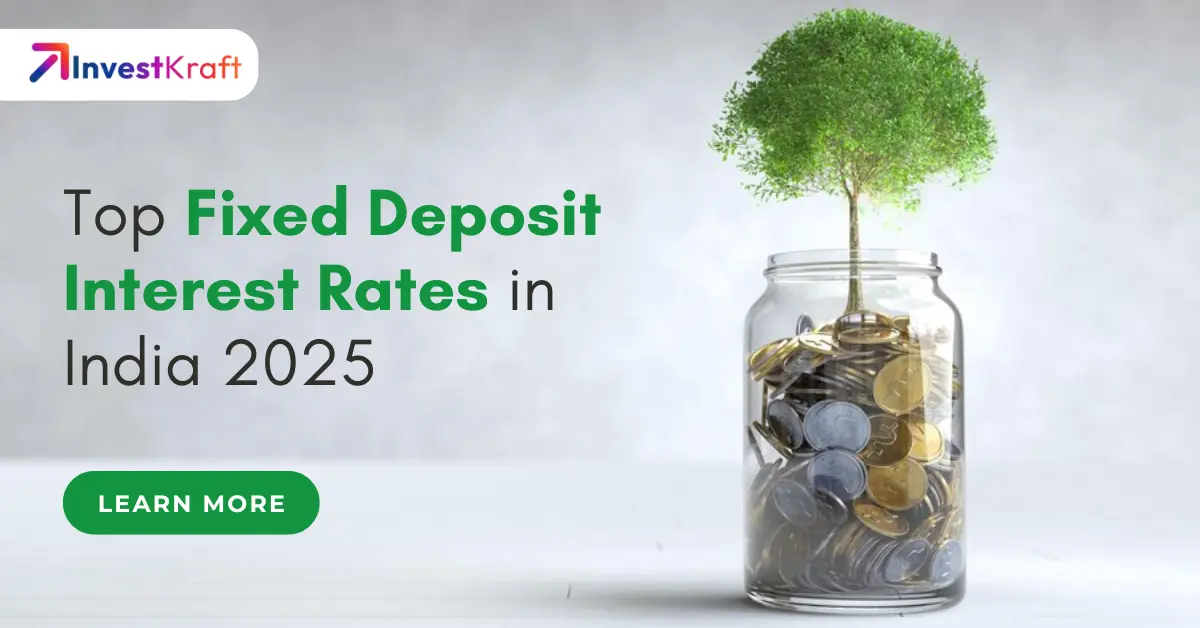
Fixed Deposit (FD) Explained: Best Interest Rates & Investment Guide for 2025
Fixed Deposits (FDs) are a popular investment tool, especially favoured by those seeking a sta...
Read more...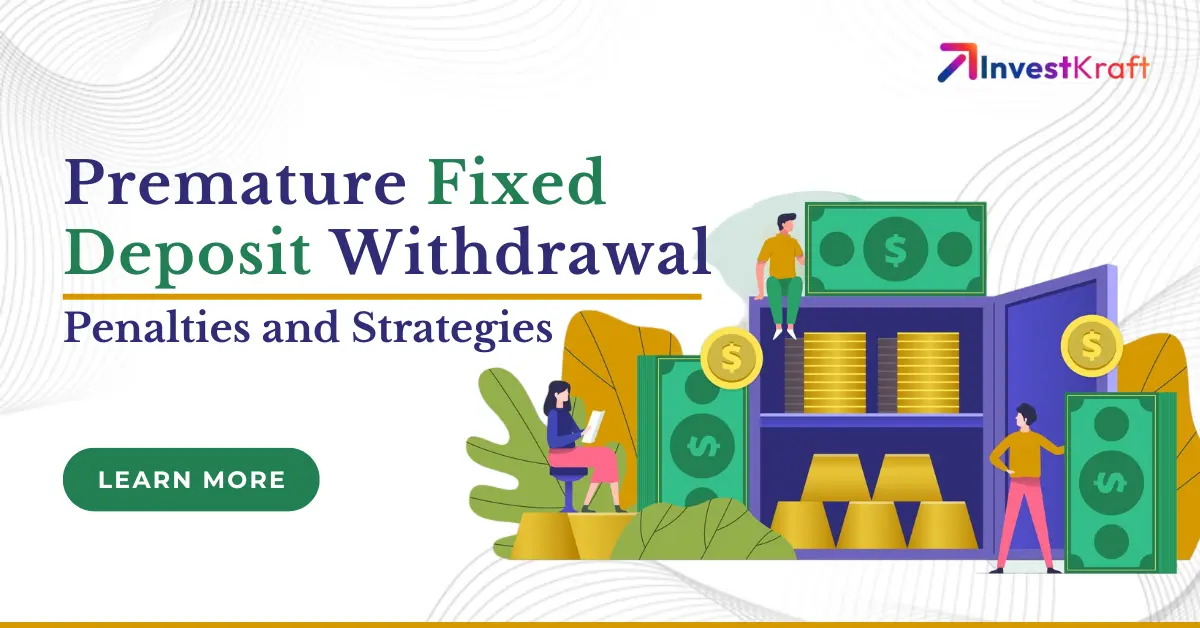
How to Escape from Early Withdrawal Penalties of Fixed Deposits?
Fixed deposits are popular for investing money as they provide security and steady growth. However,...
Read more...
Invest Wisely, Retire Comfortably: A Guide to Senior Citizen Fixed Deposits (FDs) in 2024
The interest rates for senior citizens who invest in fixed deposits can vary depending on factors su...
Read more...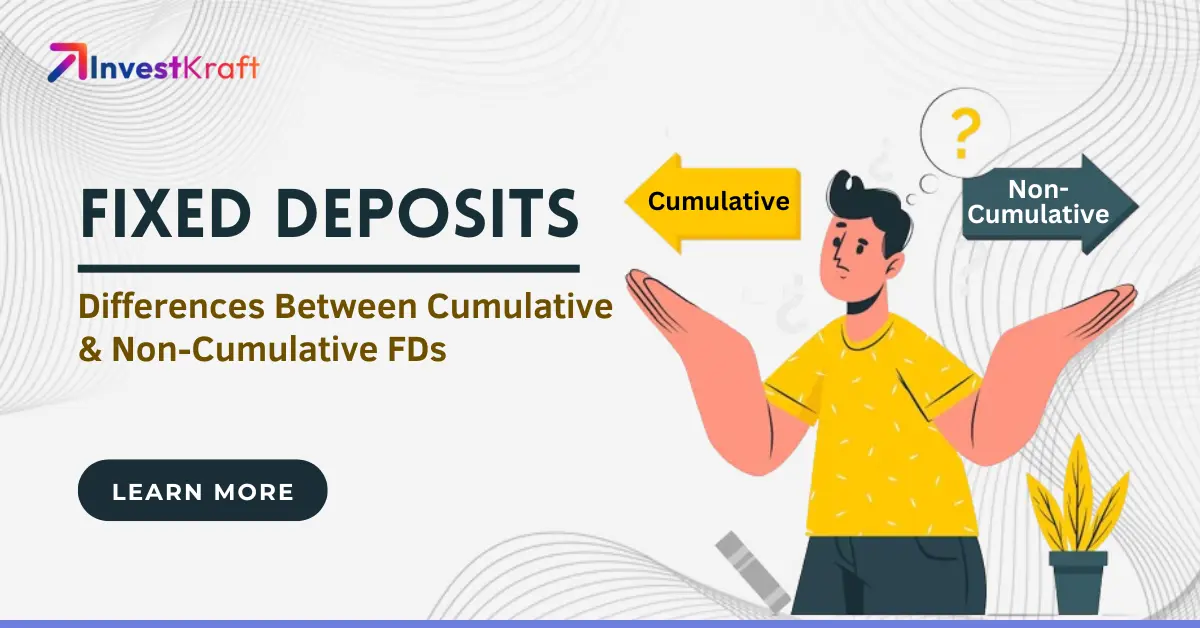
Differences Between Cumulative and Non-Cumulative Fixed Deposits
A fixed deposit is a safe investment option in India that guarantees returns through interest. There...
Read more...
Step by Step Guide to Using a Fixed Deposit Calculator Online
Step by Step Guide to Using a Fixed Deposit Calculator Online, The nicest thing about fixed dep...
Read more...
What Are Corporate FDs and How Different Are They From Bank FDs in 2024?
Fixed Deposits have always been a favourable investment option among investors who look forward to c...
Read more...
Recurring Deposits (RD) – Benefits, Features, and How to Open RD Account
Among the different types of investment products available in India these days, recurring deposits a...
Read more...
Grow Your Money Safely: A Comprehensive Guide to Fixed Deposits (FDs) 2024
Fixed deposits have been considered a time-tested investment tool to get guaranteed returns on inves...
Read more....webp)
Understanding the Impact of Inflation on Your Fixed Deposit Returns
Fixed Deposits (FDs) are indeed widely favoured due to their stable and guaranteed returns, making t...
Read more...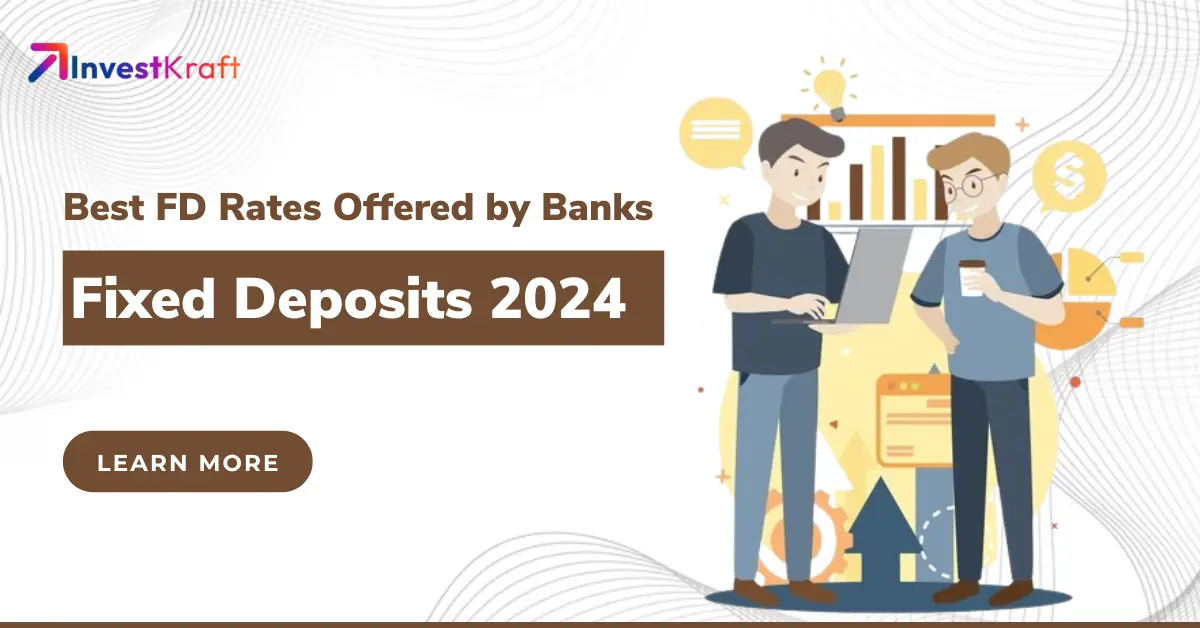
Comparative Analysis: Best FD Rates Offered by Banks in 2024
When it comes to choosing the safest and most consistent investment avenue in India, a majority of p...
Read more...Reach out to our Experts if you have any Doubts
Like the best things in life, Consultations @InvestKraft are free
Drop a Mail or give us a Missed Call & Begin your Investment Journey here








